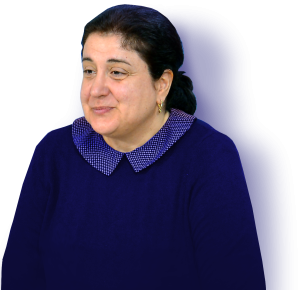Symbiosis-School of Political Studies in Greece, based in Thessaloniki, affiliated to the Council of Europe Network of Schools, offers quality training to policy makers, activists, experts and civil society representatives in Greece. The School aims to foster the exchange of ideas and knowledge and to stimulate co-operation and dialogue among civil society, policy makers, experts and media. Fostering education on democratic culture and developing competences for an equal, inclusive and sustainable world, it aims to strengthen democratic processes and civil society. Interdisciplinary and practice-oriented teaching, research and an extensive European and international network, characterised by public debate and civic engagement, prepare students in democratic governance, activism and civil society.
The school
Mission
We believe that practicing human rights protection equals to democratic rule of law
We stand for democratic participation in political processes free of discrimination and exclusion
We work on developing civic awareness on institutional practices regarding rights and competences for democratic culture
The School of Political Studies was formally founded in 2014 by the non-profit organization Symbiosis and the Council of Europe. The objectives of our education programme include 1) upholding and promoting human rights, democracy and the rule of law through quality education, 2) developing competencies for democratic culture, and 3) fighting discrimination. We believe education is both a human right in itself and a means of realising other human rights—through education, socially marginalised individuals can lift themselves out of poverty and obtain the means to participate fully in their communities. With our work as affiliated to the Council of Europe Network School of Political Studies in Greece, we aim to investigate democratic processes and strengthen democratic culture, encouraging dialogue between civil society, policy makers, activists, experts and the media and community organising for a more democratic, equal and sustainable world.
Training and learning programmes play an important role in building the capacity of individuals, organisations and institutions to contribute to building democratic institutions and citizenship. We develop training materials on key topics, undertake education about them, while networking those trained so they can learn from each other’s experience. We employ experiential methods to create a space in which individuals can reflect on their own practice and learn new approaches, techniques and tools in order to ensure that their work actively contributes to democracy.
The School started with seminars, conferences and workshops, providing a platform for policymakers, professionals and practitioners from the media, NGOs and government at all levels to engage with experts and academics. Since April 2014 the programme each year has grown considerably.
This initiative of the Council of Europe since the early 1990s aims to develop and strengthen democratic processes, strengthen civil society and promote democratic initiatives. Today, the 21 Schools that make it up, focus on the challenges that arise for democracy and its institutions.
The educational programme of the School in Greece consists of an annual cycle of seminars, participation in the Council of Europe World Forum for Democracy in Strasbourg, as well as capacity building training. The priorities address human rights, anti-discrimination, social inclusion, democratic citizenship, freedom of expression, democratic governance, equality and gender-based violence, migration and the protection of the environment.
Symbiosis-School of Political Studies in Greece work is financed by Council of Europe grants, while the events often share resources from the framework of European Commission funded relevant projects, such as EC REC (Rights, Equality and Citizenship), AMIF, EACEA, etc. The EEA grants have co-financed several seminars. The long standing partnerships of Symbiosis-School of Political Studies in Greece with other Schools, with transnational European partners within EC projects, political foundations and civil society in Greece and globally have been a valuable resource in our work.
A word by the Director
 “Based on the premise that practicing human rights protection equals to democratic rule of law, and there is no one right way to educate for democratic leadership, but understanding that democratising the educational process is important, the Symbiosis-School of Political Studies in Greece aims to foster democratic governance and participation in public debate by promoting democratic political culture, civic participation, free media, and by giving a voice to those marginalized or unheard.
“Based on the premise that practicing human rights protection equals to democratic rule of law, and there is no one right way to educate for democratic leadership, but understanding that democratising the educational process is important, the Symbiosis-School of Political Studies in Greece aims to foster democratic governance and participation in public debate by promoting democratic political culture, civic participation, free media, and by giving a voice to those marginalized or unheard.
The question of citizenship lies at the heart of the legitimacy of rule and political subjectivity. Discussions on citizenship – what it means to be a citizen, who can act as a citizen, what obligations derive from citizenship – are at the forefront of much political discourse. Time again and again we seek to understand how citizenship is claimed, disputed, built — in short, enacted. Citizenship has been an unprecedented project in the making. But it is not simply about status and rights. There is a dynamic element too: citizens, migrants, refugees, illegal aliens and states, all enact claims to citizenship. How do acts shape our ideas of subjects of citizenship, and the very idea of citizenship itself? Acts that articulate claims to citizenship (and produce claimants) create new sites of belonging and identification, differing from traditional, and still important, sites of citizenship, such as voting, social security and military obligation. Acts of citizenship stretch across boundaries and produce new subjects and scales of citizenship. We expand the focus from what people say (opinions, perceptions, attitudes) to what people do – an important supplement, and sometimes a corrective, to a conventional focus on what people or authorities — be it the CoE, the EU, as well as national courts, agencies, and organisations — say about citizenship and identification.”
Despina SYRRI


